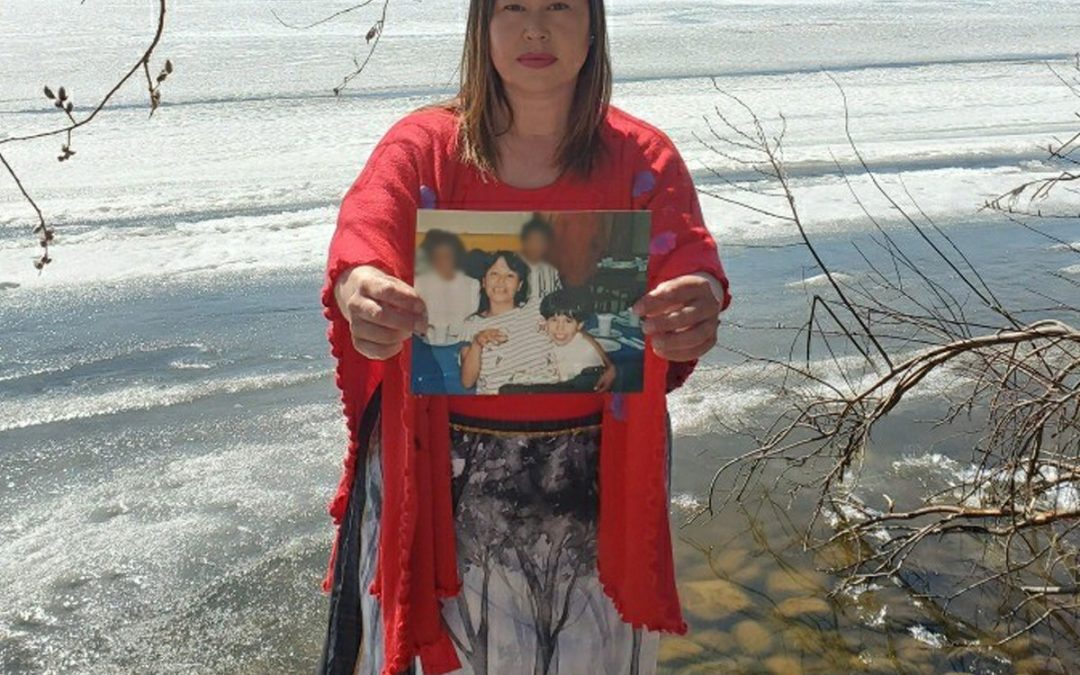(Crystal in La Loche wears red to remember her mother Janet Sylvestre. Janet was 37 years old when she was last seen in Saskatoon on October 12, 1994. Her remains were found in a rural area outside of Saskatoon on October 13, 1994. Credit the Sask RCMP Twitter.)
As the country marks today as National Red Dress Day, Indigenous Peoples are calling for immediate supports for women and girls, especially during the COVID-19 pandemic.
Red Dress Day was created to raise awareness to Missing and Murdered Indigenous Women and Girls and gender-based violence, including violence towards two-spirited people.
“This government continues to pat itself on the back, claiming to be doing all that they can. But I’m calling that bluff. For 14 years, the SaskParty has put First Nations and Métis issues on the back burner, or they use them to divide Saskatchewan people to score cheap political points.” said NDP MLA Betty Nippi-Albright.
Saskatchewan RCMP said officers are currently investigating 27 open cases of Murdered and Missing Indigenous Women and Girls, adding each case in equally important.
The province says it has taken action on addressing gender-based violence through ending birth alerts earlier this year and funding First Nations and Métis projects. “In December of 2020, we announced $400,000 for the First Nation and Métis projects to finish focus on issues raised by that National Inquiry,” explained Social Services Minister Lori Carr, who answered in the Legislature Wednesday as Minister of Government Relations, Minister Responsible for First Nations, Métis and Northern Affairs Don McMorris was absent.
However, the Federation of Sovereign Indigenous Nations is seeking greater investment for services to women in need.
“The number of women and families being turned away from emergency shelters because they are at full capacity, heightened food insecurities, as well as inadequate housing are compounding factors that are maintaining high levels of violence and persistent hardships” Vice Chief Bear said. “As leaders and government agencies, we must ensure there is adequate supports during and after this pandemic.”
